The last mailbag of 2022 has to do with the most common question I get asked – BMW brake noise. What causes it? Can we fix it?
Thank you for sending all of your questions in this year, there were so many good ones! Keep ’em coming in 2023.
Question
Hey Mike, do the brakes make a lot of noise on your M3? They do on mine (I have the steel discs). I’m starting to wonder if the carbon ceramic option was the better way to go.
– Aaron
Answer
Aaron’s email wasn’t the only one I received regarding this “issue”. The short answer is “because race car”. But for the more technical reasons, keep goin’.
Compound vs Carbon
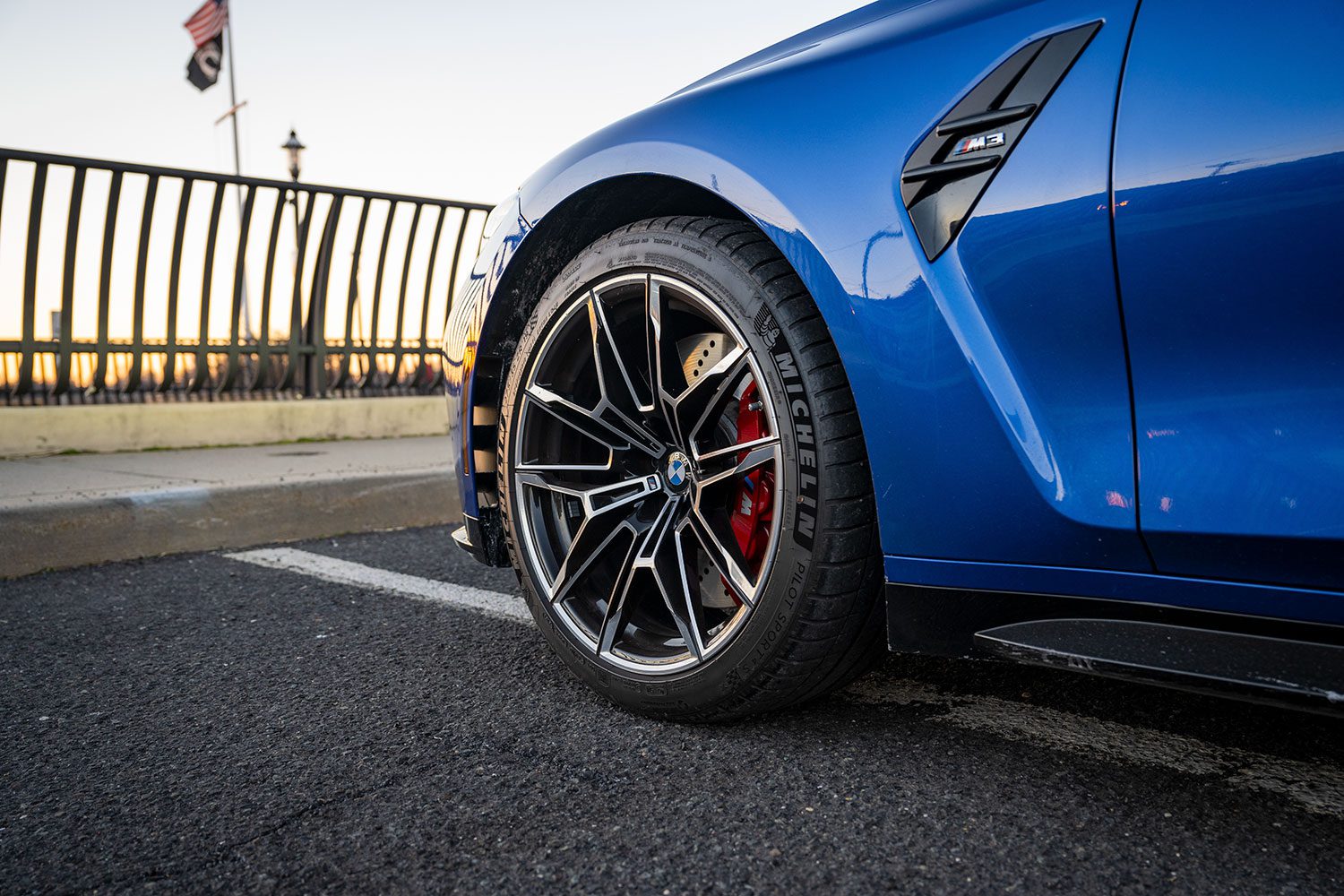
Let’s start here. Though the problem of BMW brake noise isn’t exclusive to M cars, everyone asks me if carbon ceramic brakes are the way to go. The answer is maybe. By the way, Aaron mentioned that the base brakes are steel, but they are actually a mix of materials.
Get them
Carbon ceramics are very expensive (on the G8X, it’s an $8,000 option), but before you run for the hills, think of some of the benefits:
- They do not dust nearly as much (a big deal if you keep your wheels clean)
- They last longer. Depending on how you drive, could be the life of the car, or at least your time with it.
- They look better, with their crackled mirror finish
- They don’t fade as quickly during high-performance driving maneuvers
- They are lighter, reducing unsprung mass
Don’t get them
It’s not a bullet proof choice, and aside from the cost, they:
- Sometimes take a bit to warm up and truly bite down
- Don’t provide a difference in brake pedal feel
- Usually don’t provide a shorter stopping distance, unless the hardware is significantly different. On BMWs, they are close in size to base brakes.
- Though they last longer, you’d have to replace the compound rotors and pads twice to recoup the cost
- They sometimes squeal even more
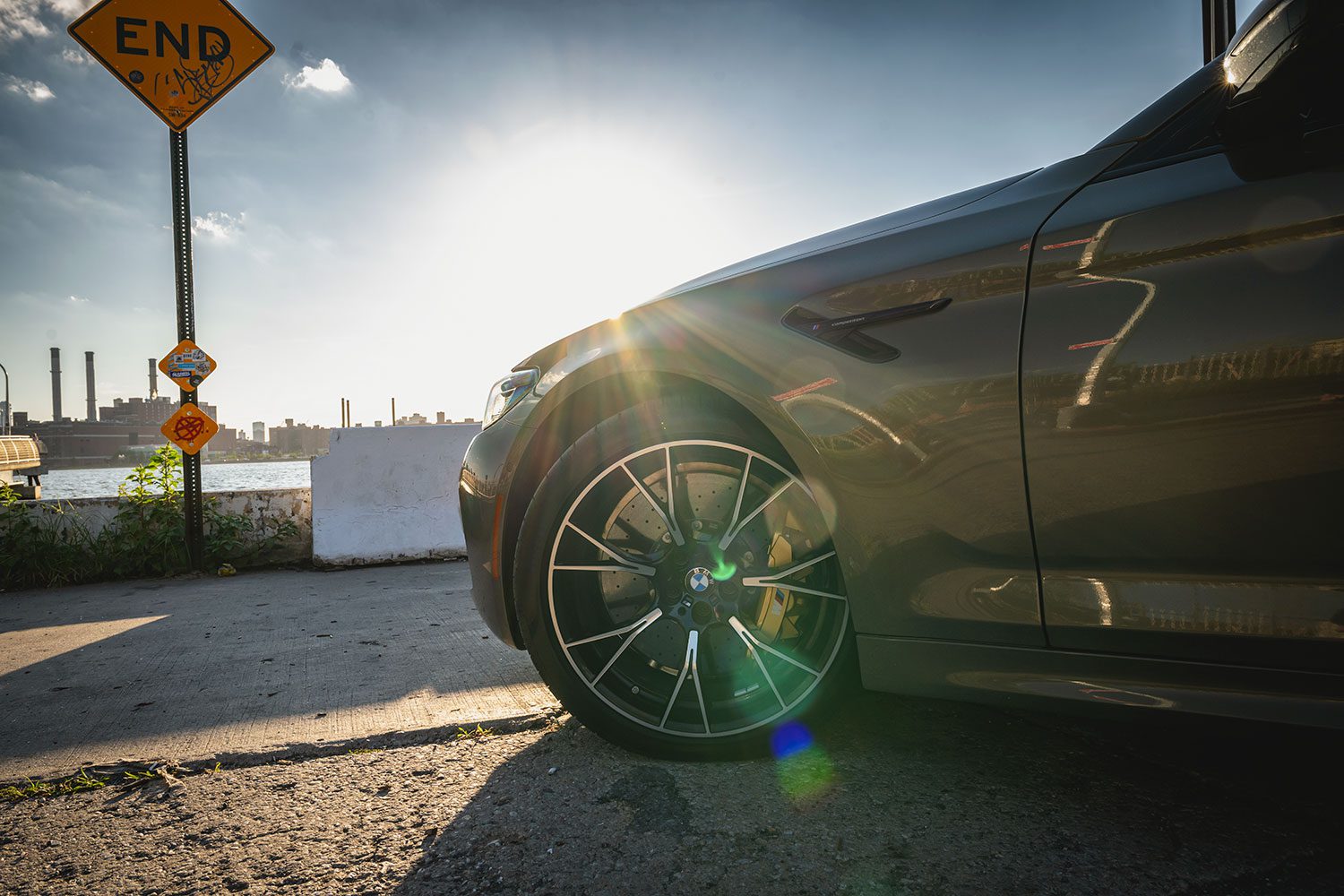
Did I sneak that last one past you? It’s true, they can sometimes make even more noise than the compound discs. Many owners say it’s not nearly as bad on the G8X vs the F generation of cars, but I don’t know. I’ve spent a lot of time at the Performance Center, and BMW brake noise is everywhere. All their M cars come with CCBs.
However, my time spent with the Blackwing and M5 saw no noise, and very little dust on either system. Both are made by Brembo – they might even be the same brake system. Point is, they are getting better.
So the answer here is if you’re optioning your M car to a budget, then carbon ceramic brakes might not be something you need to enjoy the experience. But if you can do it, you should.
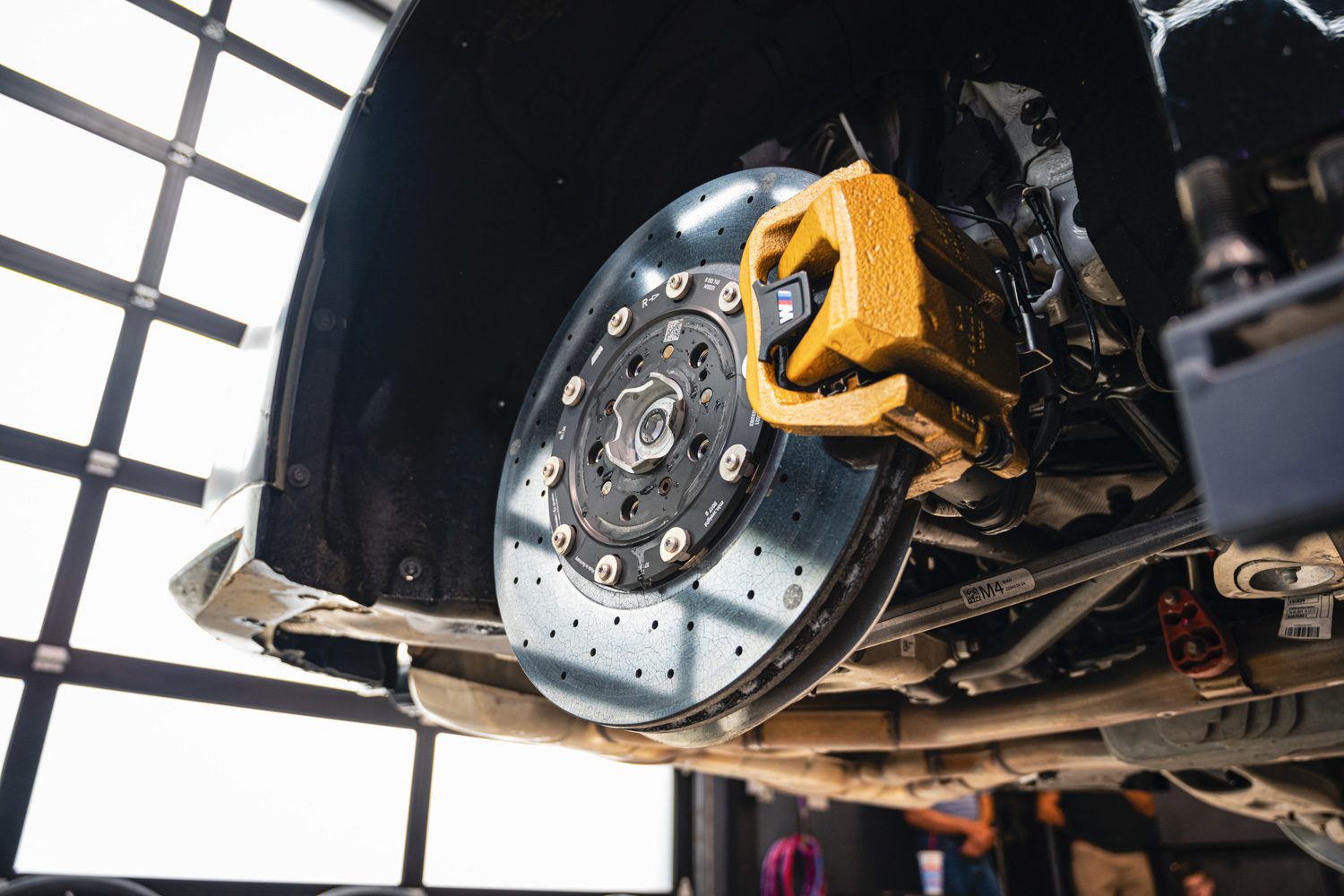
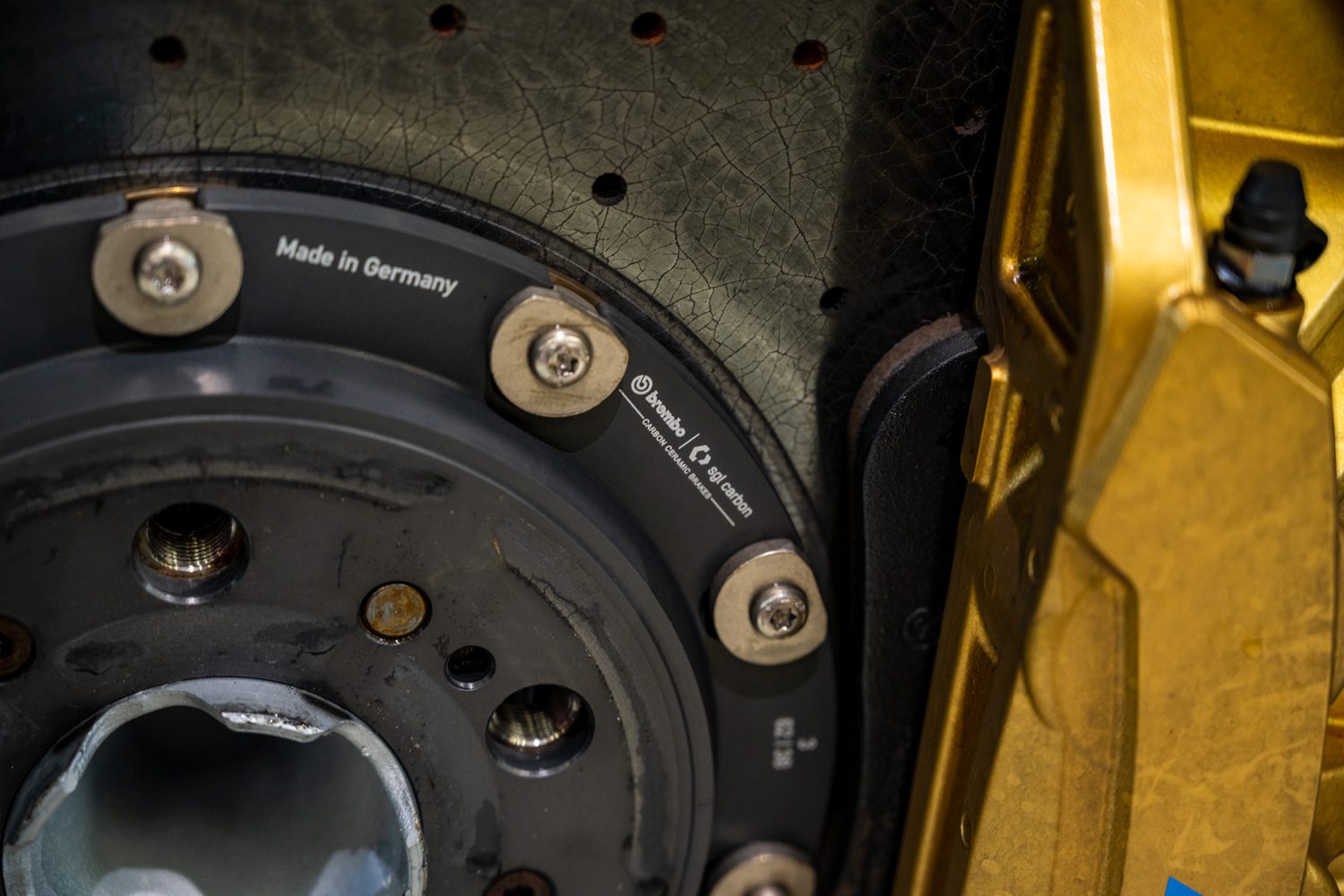
My BMW didn’t come with CCBs. Can I add them?
If you look up the parts needed to make the conversion, you won’t find it any easier than ordering them from the factory. Just a carbon brake disc alone for an F80 M3 is over $4,000. That’s per corner. IND sells an entire kit for over $13,000 on the F8X, so you won’t save any money adding this later on.
If you’re in say, an M340i, where CCBs are not a factory option, you’re best bet is to add a big brake kit.
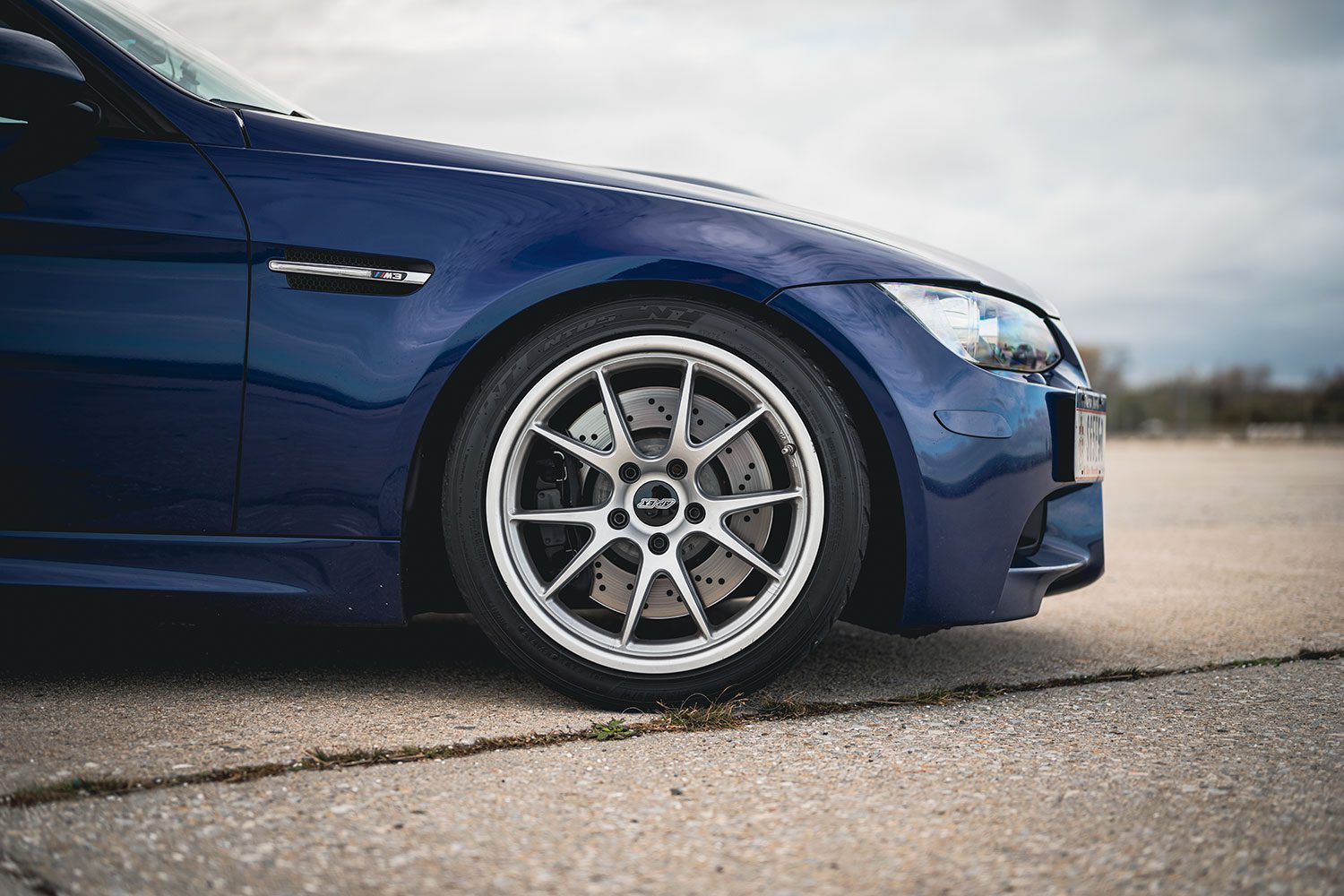
So what about BMW brake noise?
For the plebeians that have compound brakes, noise is a way of life, and BMW will tell you that right from the mother ship because it’s in the manual. Before we fix it, we need to find out why. Forget about the usual “my pads are worn” too (unless they are, but you’d know that already cuz you’re one with the machine). That has nothing to do with it. Noise can come from:
- Not bedding in the brakes properly
- A build-up of rust or other material on the cast iron surface
- The heat cycles of the car’s operation
- They are wet, or damp
- Natural rotor movement and “stick slip”
Some of these things are fixable, and all it requires is for you, dear M driver, to have some fun.
Bedding the brakes
M Compound rotors and pads are made up of different materials, hence “compound”. That means they need to learn to work together. You step on the pedal, and the pads grip the rotors, causing friction and heat. This leaves deposits of material on the surface of the rotor, and wears away the initial cross-hatch pattern of the new rotor surface. So for the first 500 miles or so of ownership, take it easy as they get used to each other. Nice to meet you.
After that getting-to-know-you phase, it’s time to take them to bed (please be safe when you do this). Get your car up to 60mph, hit the brakes firmly to the point right above ABS engagement (don’t drag the pedal out), slowing the car quickly to about 15 mph. Then do it again from 70, 80, 90 and 100, each time pressing hard on the brakes. You might smell something cookin’, and that’s good.
Once you’ve done your stops, head home and avoid big panic stomps on the brakes. Once the car is parked, let is cool for a few hours. You’ve now bedded your brakes properly.
Rusty rotors
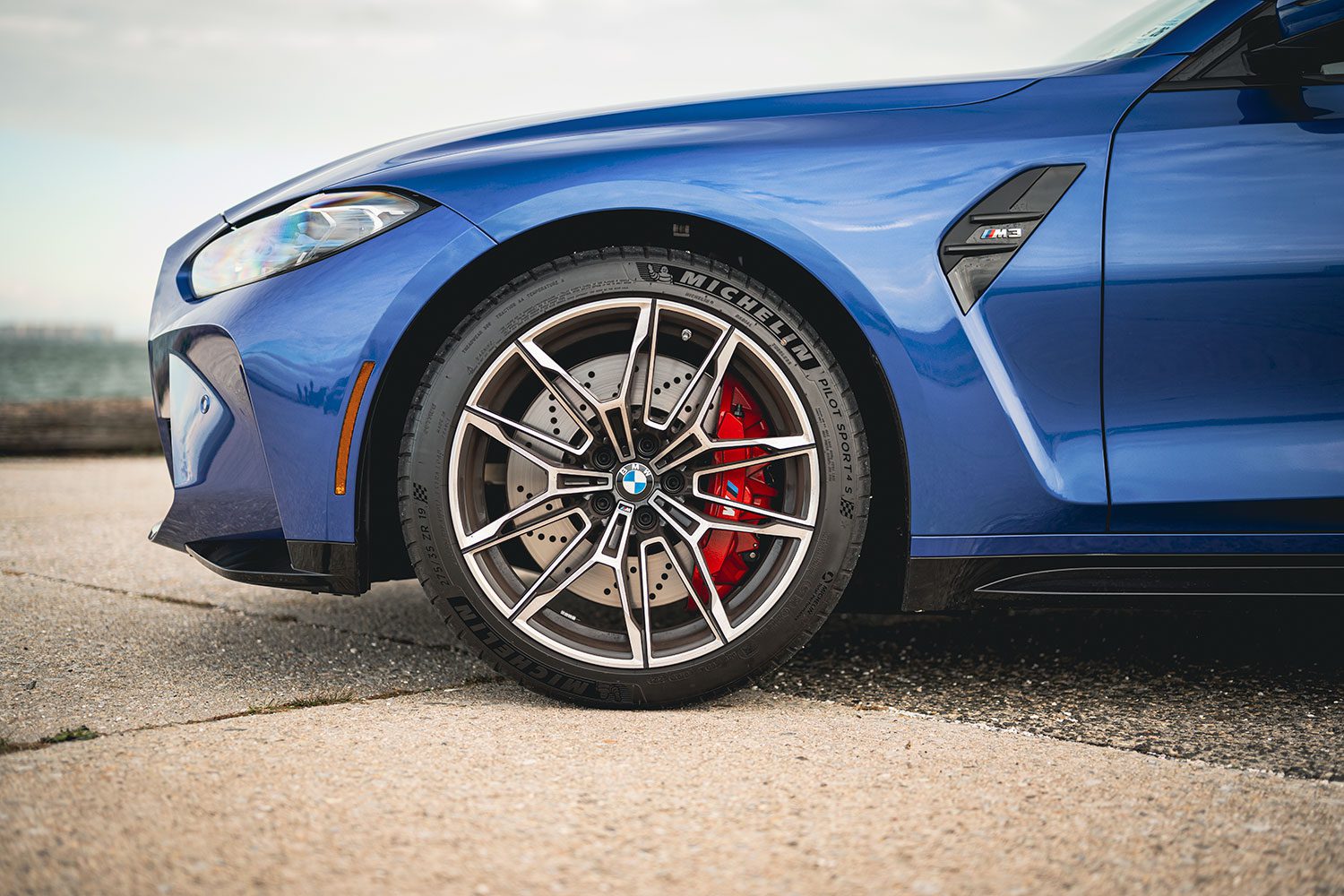
BMW brake noise can sometimes be caused by a wet disc in dry air. Just washed your car, or driving after a rain storm? You might get some squeal, but after a few stops, it should go away.
The problem comes from the cast iron surface of the rotors, which quickly form surface rust in open air. Wash your car by hand, and by the time you’re done, you’ll see rust on the rotors. It’s normal, but it can make some noise.
By the way, notice how dirty your wheels get after you just washed the car? It’s from that surface rust. After you wash the car, take it for a quick spin, tapping the brakes to clean off the rust, then park it to wipe away the rust on the wheels.
Track time
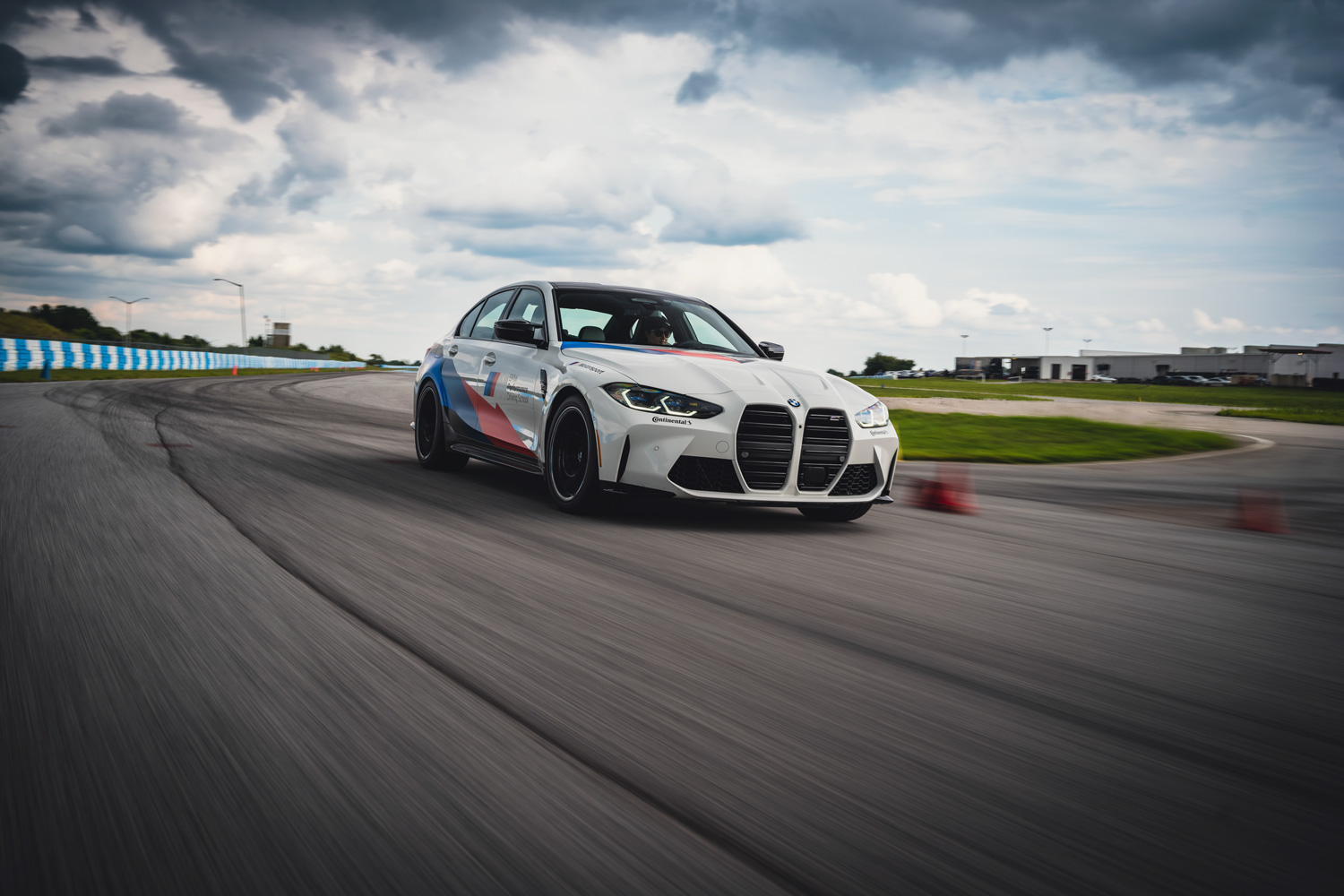
Remember that BMW battery issue? The German engineers couldn’t understand that American driving habits meant driving short distances, not giving the cars a chance to charge the batteries.
Sort of the same thing here. In Germany, there is the Autobahn, the Nurburgring…places where driving fast is encouraged. But here, unless you track the car normally, you’re not using M brakes to their full potential. To solve this, just get on the car a bit. Hit the brakes, build up some heat in them. You won’t “brake” your M3. Sorry…
Polishing and cooling the brakes
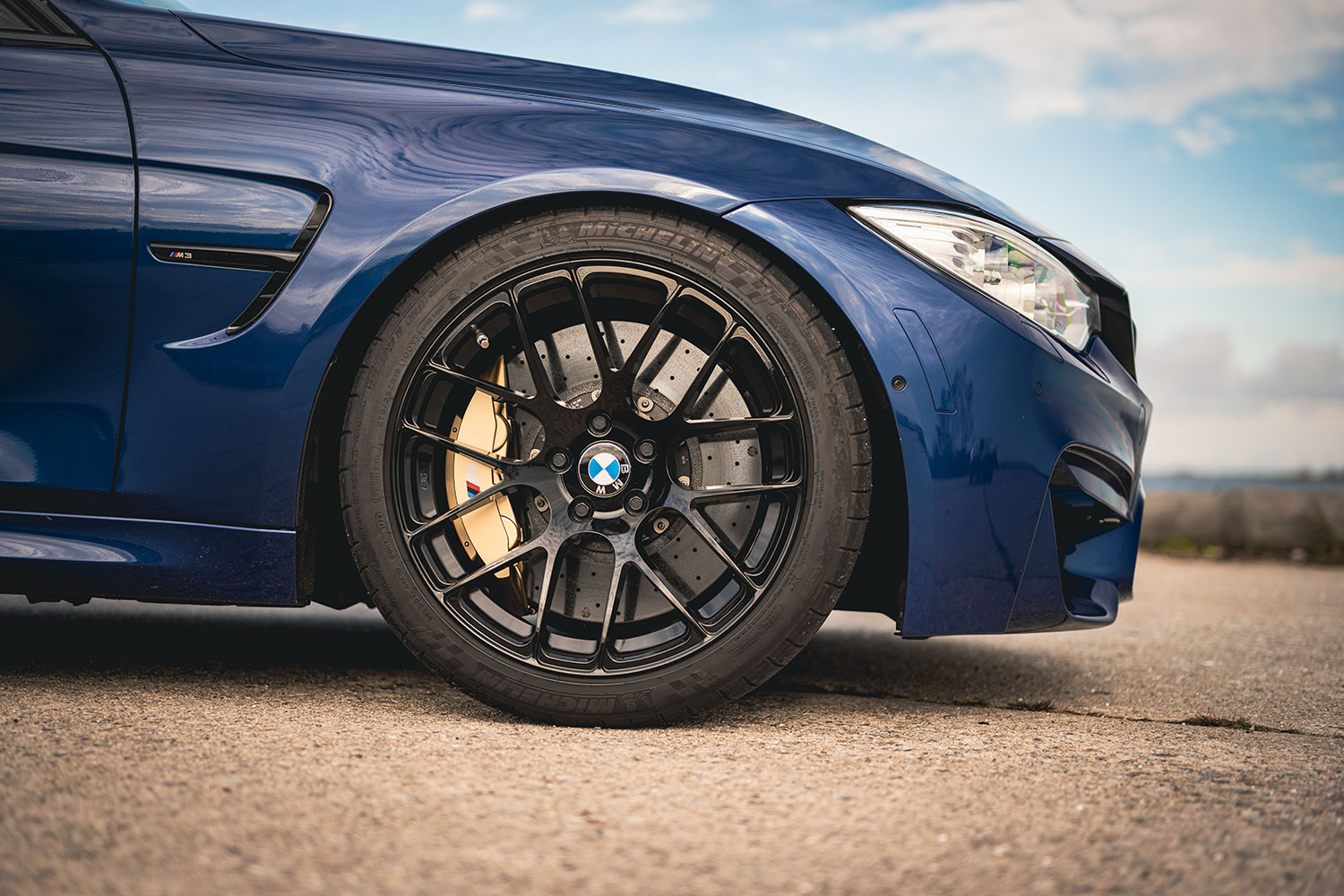
You really have to love BMW M. You break the car on track, they won’t want to hear anything. Tough luck kid. But all their marketing material mentions (and sometimes shows) the car on a race track.
Take this page, and the advice of “polishing the brakes” after a track day. Just lightly press the brakes at low speed to clear out any pad residue off the surface.
Also remember that you should not use your e-brake after a track session! The extreme heat can cause the pad and rotor to fuse and/or warp. Also avoid standing on the brakes after they’ve been heavily used. Cool down laps are important, be it street or track.
Stick car? Just leave it in gear with a wheel chock if you need.
Porsche problem
So you’ve done all this, and the brakes still squeal like a big yellow school bus. Like rod bearings and throttle actuators, it’s just part of the experience man.
If you take a look at the hub of your brake system, you’ll see it looks different from that of a normal car, and that’s by design. This grey-cast friction ring is connected to the disc by pins and allows the disc to move and expand as it heats up without deforming.
But all this movement causes “stick-slip” – microscopic movements in the rotor that get amplified throughout the metal of the disc. I’ll let Porsche explain:
You’ve just got to live with it
If BMW could get rid of it, I believe they would have by now. BMW did not cheap out on the brakes (Porsches make noise too, after all). Think of it like horsepower and poor gas mileage – you can’t have one without the other. It’s physics. Same with the brakes. Every BMW I’ve owned, M car or not, has had this issue.
There is a lawsuit against BMW by some owners stating that the noise is dangerous. After all, how will you know when it’s time to replace the brakes if they always squeal?
Personally Aaron, I’d rather have full confidence in my M3’s brakes, even if it means some funny looks at car shows from non-M people.
Support the cause
Commissions may be received for product links on this site. Help out if you can.
I use Nikon camera bodies and lenses, a Westcott Ice Light 2, Manfrotto tripod, B + W filters, DJI gimbals, Rode microphones, Dracast RGB lighting, and an iMac Pro to make the art you see here.
Email me at mike@machineswithsouls.com with any questions. Follow along on Instagram @machineswithsouls

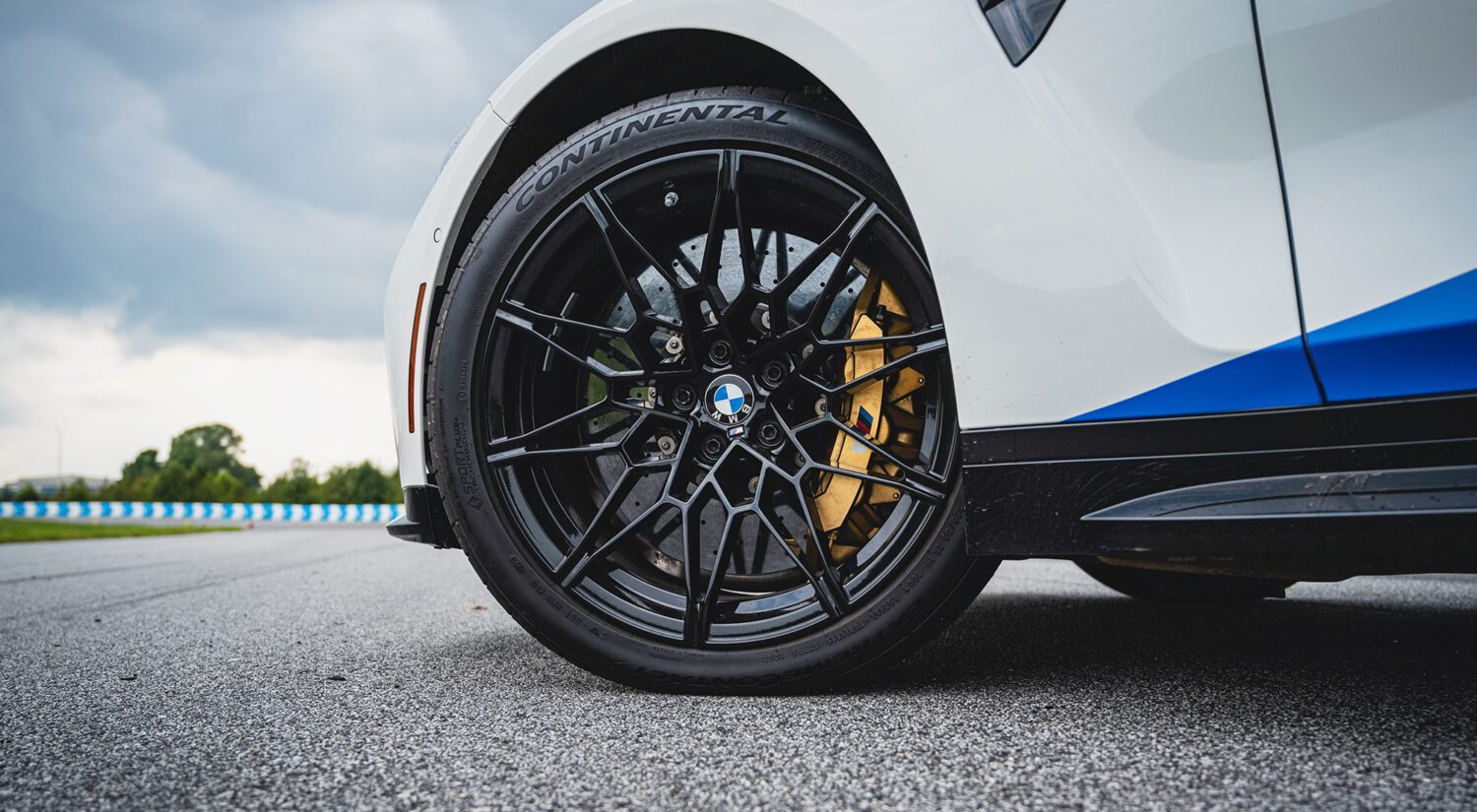
One thought on “Friday Mailbag: Solving BMW brake noise”